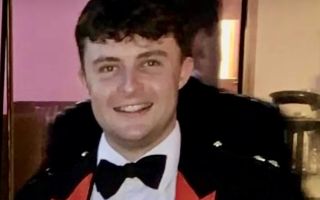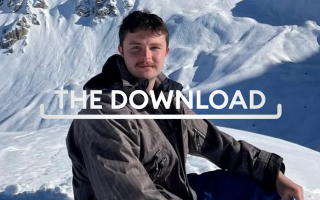Fake news is just another name for propaganda, warns Bergen-Belsen survivor
BFBS Forces News reporter James Wharton meets Bergen-Belsen survivor Alfred Garwood.
The best thing about being a journalist is that you get to meet some of the most extraordinary people on the planet.
The downside is you often get just five minutes with them to draw out the most compelling parts of their deeply personal stories.
I recently met Alfred Garwood, an 82-year-old retired doctor who was born in a ghetto in Poland.
He was being honoured alongside fellow Holocaust survivor Mala Tribich by the Light Dragoons, a regiment of the British Army.
Eight decades ago, Alfred was imprisoned at Bergen-Belsen, a concentration camp infamous for the dreadful conditions endured by its inmates.
Unlike other camps associated with the Holocaust, Belsen did not have gas chambers.
Instead, its victims were systematically starved and mistreated – a method of killing that led to the deaths of more than 70,000 people.
In April 1945, British Army units advancing across Northern Europe discovered Bergen-Belsen. It became one of the first camps to reveal the full extent of the Nazis' atrocities against Europe's Jewish population.
For our news report, we sourced archive footage captured just days after those units arrived. In it, a British officer described the grim task he and his men were facing.
"We've been making the SS, of which there are about 50, bury the dead," he said. "So far, we’ve buried about 17,000 people, and we expect to bury about half as much again."
Alfred was still a young child when the war in Europe ended in 1945. I asked him what he remembered of that time.
"You need to understand that when I talk about Belsen, I'm talking in two ways," he explained.
"One, I can recall being told details because I was a child. But then the second part of what I recall are memories that don't come back as visual memories like watching a TV news reel – they are feelings.
"A memory of having rickets, starving, hardly being able to stand because there was so much pain.
"In all the photographs of that time, I’m being carried by my parents because it was too painful to stand. It wasn’t just being loving, I was in great pain."
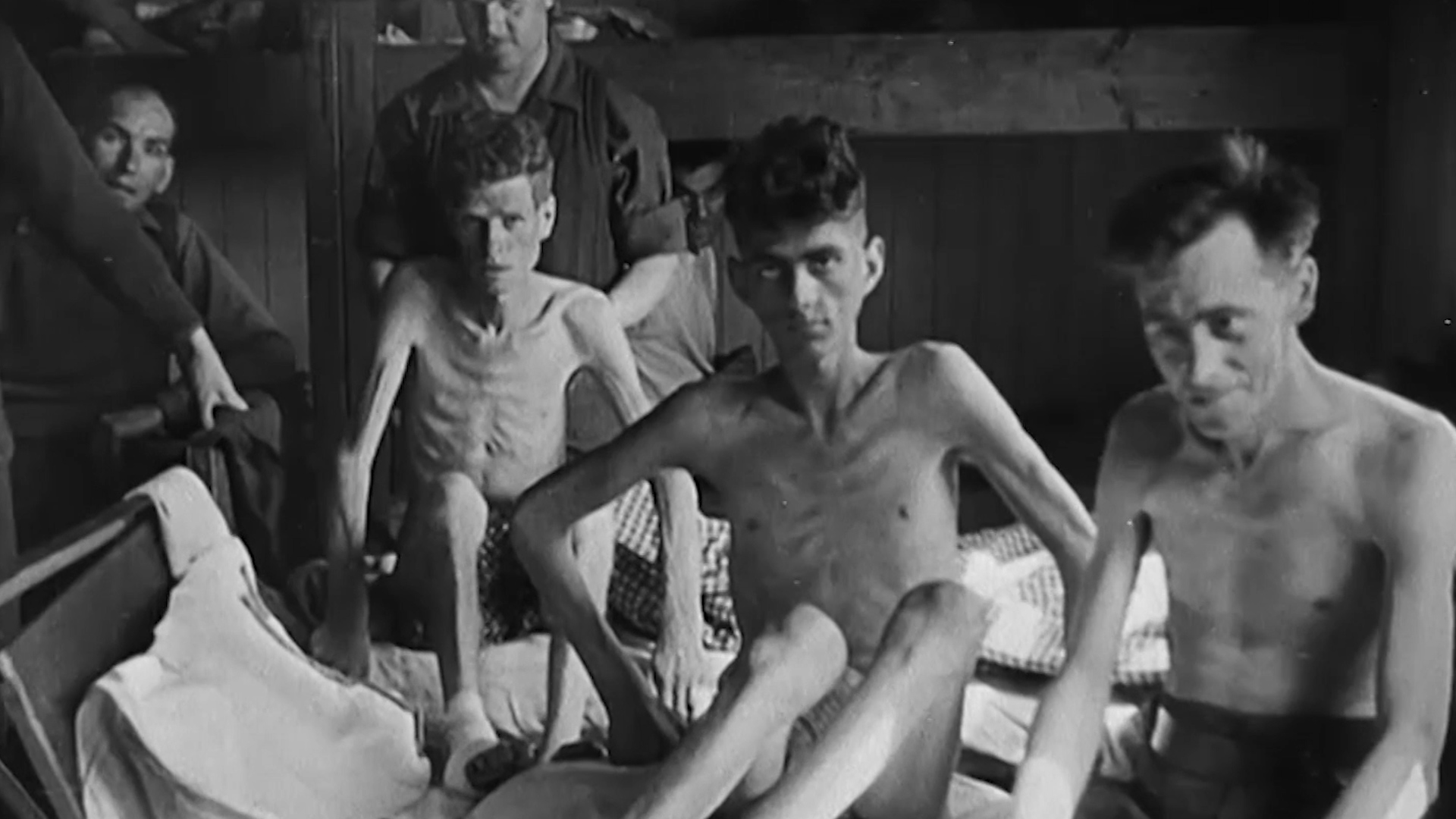
Having survived the Holocaust, Alfred went on to train as a doctor. But in an extraordinary twist of fate, in the 1980s he treated a man for mental health issues who revealed that he had been among the British soldiers who liberated Belsen.
"He told me he had liberated Bergen-Belsen during the Second World War," Alfred recalled. "He brought me photographs that he'd taken.
"And I realised that everyone who went there suffered. The Army – everybody – was traumatised in their own way by seeing the dreadfulness that it was."
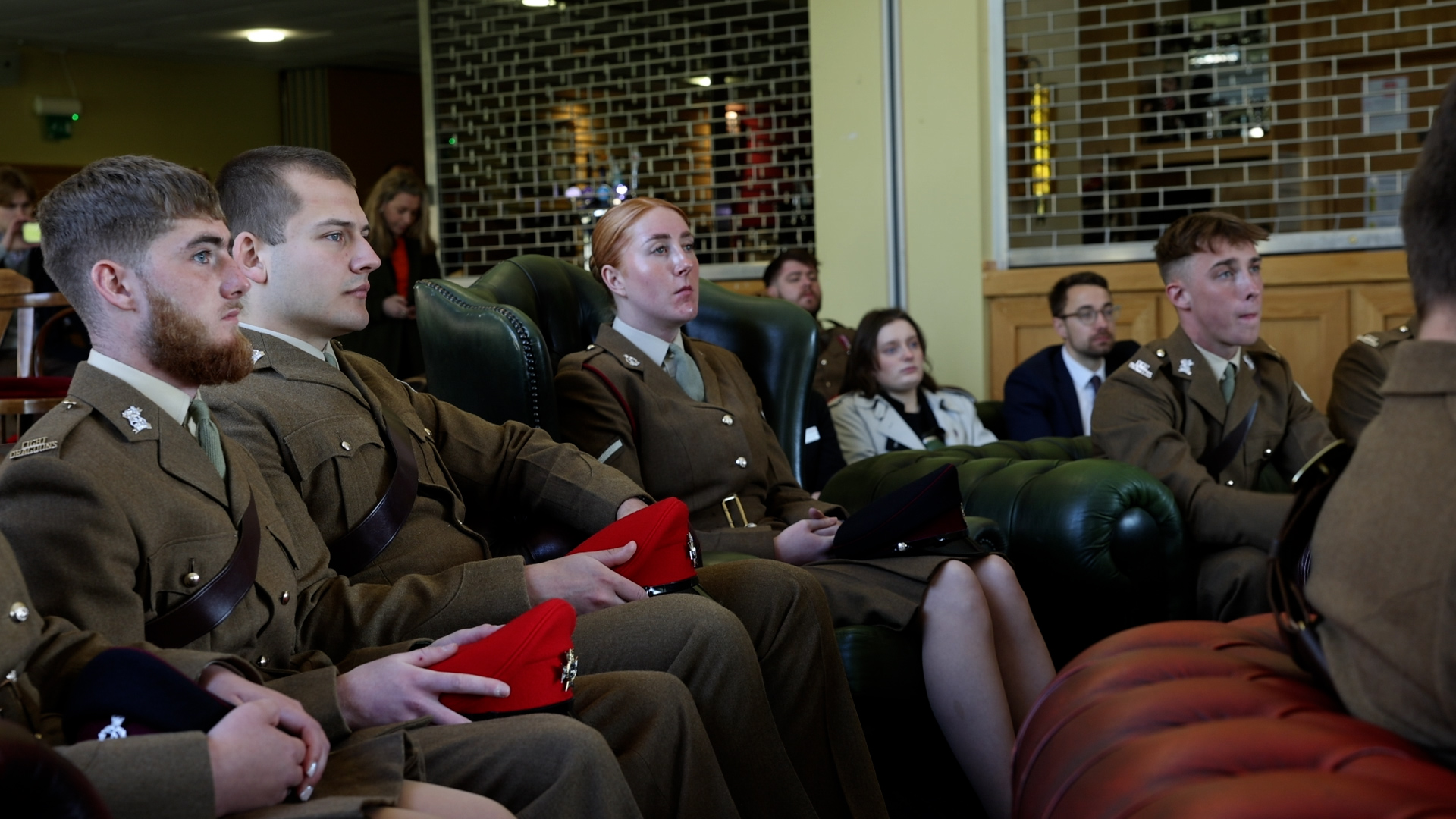
While most of the 80th anniversary commemorations are taking place at the Belsen site in Germany, Yorkshire played host to a poignant moment of remembrance too.
The Light Dragoons, who are based at Catterick Garrison, trace their lineage back to the 15/19th King's Royal Hussars – one of the units that discovered Belsen in 1945.
That legacy remains a significant chapter in the regiment's history.
The commemorative event included ceremonial elements, like a tree planting by Alfred and Mala. But there were also intimate, powerful moments – soldiers sitting down with the survivors and hearing their stories firsthand.
Lance Corporal Morgan O'Connor was one of them. After the session, he told me that while the Holocaust is part of school history lessons, the real depth of it often doesn't hit home.
"It's been really eye-opening," he said.
"To actually understand the horrors from their mouths is just breathtaking."
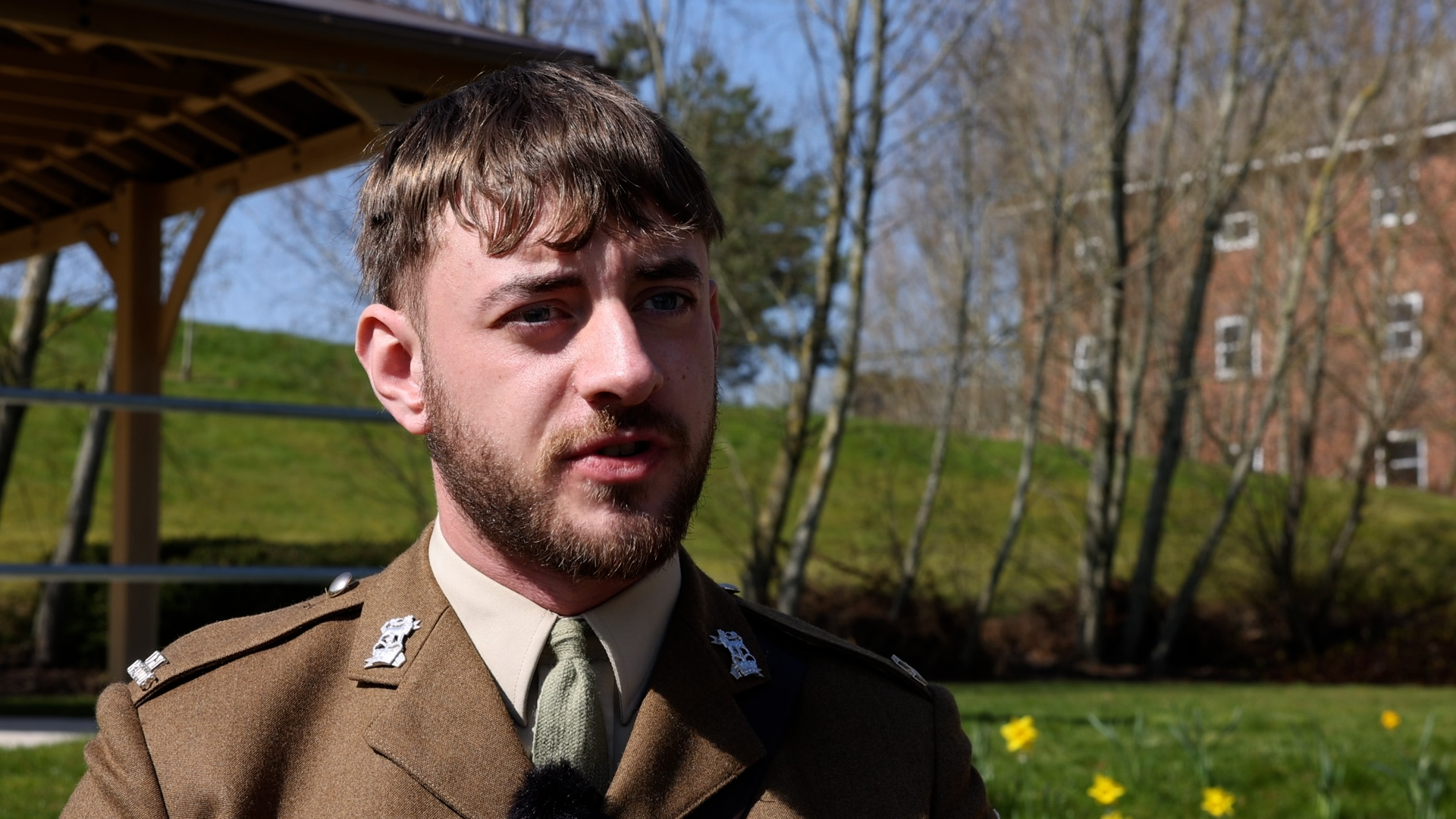
While our conversation touched on trauma and survival, Alfred was also focused on the present – especially the war in Eastern Europe.
With the Light Dragoons just weeks away from a major deployment to Estonia, only 700 miles from Ukraine, he stressed how vital remembrance is in the modern world.
"It's important to remember," he said. "Fake news, back then it was called propaganda, and it was a powerful weapon used by the Nazis to pervert people's minds.
"It's still being used today."
I did, in fact, speak to Alfred for longer than five minutes – but only a little more. Incredibly, in that short time, he conveyed more insight and humanity than some manage in an entire speech.
It was a privilege to meet him – and an even greater one to listen to him. Even if only for a short while.


